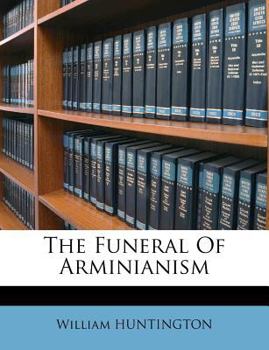The Funeral of Arminianism
Select Format
Select Condition 
Book Overview
The Funeral Of Arminianism presents a compelling collection of sermons by William Huntington, a prominent 18th-century Calvinist preacher. This work offers a robust defense of Calvinistic theology... This description may be from another edition of this product.
Format:Paperback
Language:English
ISBN:1178932036
ISBN13:9781178932034
Release Date:August 2011
Publisher:Nabu Press
Length:76 Pages
Weight:0.34 lbs.
Dimensions:0.2" x 7.4" x 9.7"
Customer Reviews
0 rating





